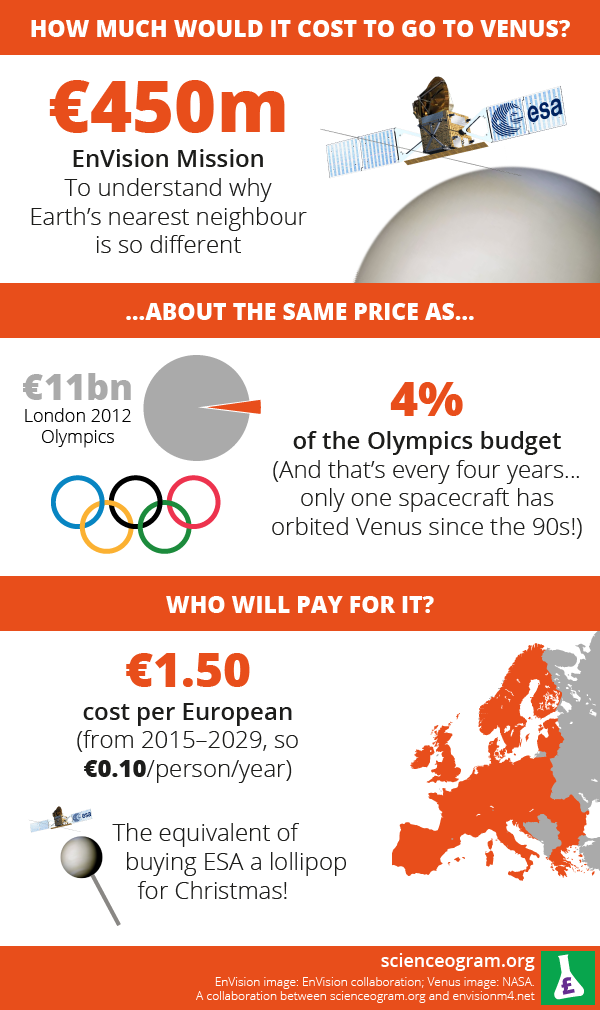How much would it cost to go to Venus?
An international collaboration of planetary scientists has just submitted a proposal for ESA to launch a mission to Venus in 2025. They’ve also helped us produce an infographic, inspired by our Rosetta cost breakdown, to put this proposed trip into context. Check it out, and please share it!

The EnVision mission aims to work out why Earth and Venus are so different. ‘We’ve spent the last twenty years or more looking for evidence for life on Mars, but Venus is actually the most Earth-like planet in the Solar System,’ explains Dr Richard Ghail, EnVision’s lead proposer. ‘It almost certainly started out as a benign planet with oceans, so why did it evolve to become so hostile to life?’
In spite of being almost exactly the same size and only slightly different distances from the Sun, Earth is a temperate planet, teeming with life, and Venus is a 450°C pressure cooker whose atmosphere is primarily composed of carbon dioxide. EnVision will look for geological clues to explain these stark dissimilarities, and will shed light on the origins of our solar system, the planets we’re now discovering around other stars, and life.
Like Rosetta, this is very much a blue-skies science project whose primary output will be knowledge, but indirect spin-offs from engineering know-how to inspiration are an unpredictable but inevitable consequence. This is, we’d argue, easily worth a lollipop per person per year!
‘This graphic and Scienceogram’s work in general drives home the point that space and cutting-edge science are not expensive when put into perspective with everyday expenditures we take for granted,’ says Louis-Jerome Burtz, Research Student at Imperial College involved with EnVision, ‘And events like the Olympics wouldn’t be possible without the logistics enabled by space technology.’
We’d love to see this kind of analysis embedded in science funding decisions, so it’s great to see that our Rosetta infographic has inspired a space science sequel. If you’re a researcher and you’ve got any ideas for context-setting comparisions within your field, please get in touch. And the very best of luck to team EnVision!